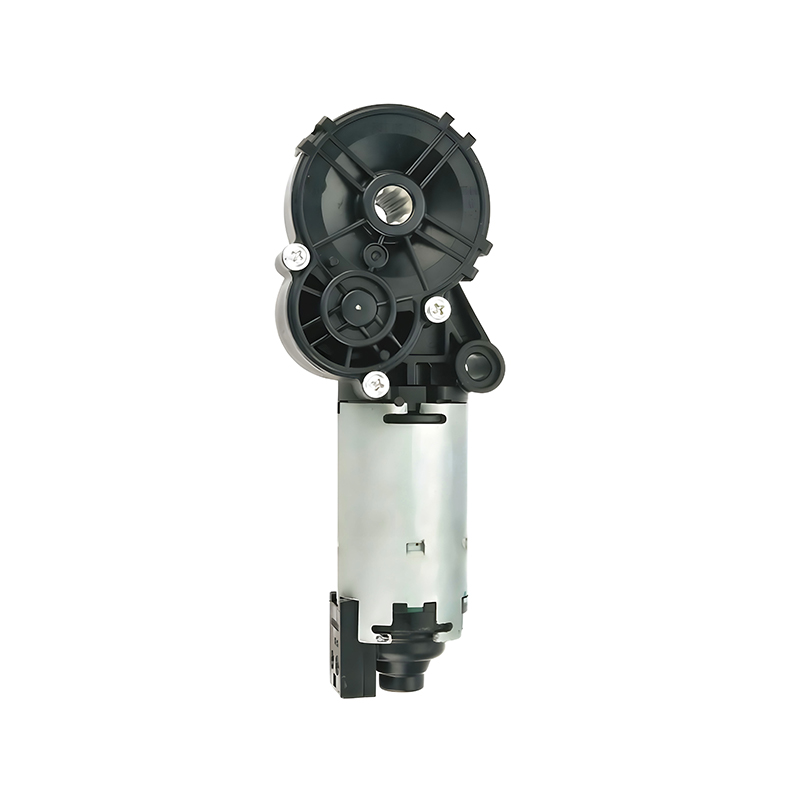In the design and manufacture of automotive precision motors, material selection plays a crucial role in ensuring performance and durability. One of the key components that often faces thermal stress during operation is the motor housing. Recently, there have been significant improvements in motor housing materials to enhance thermal stability, particularly for electric window motors for cars and other automotive applications.
Electric window motors for cars must operate reliably under varying temperatures, from cold winter mornings to hot summer afternoons. The motor bracket, which supports and secures the motor assembly, also experiences these temperature fluctuations. When the motor housing material lacks sufficient thermal stability, it can expand, contract, or degrade, pilot to misalignment or increased wear on internal components. This, in turn, affects the performance and longevity of automotive precision motors.

Traditionally, motor housings were made from standard polymers or metals that provided basic protection and structural support. However, with advancements in automotive technology and the increasing demand for quieter, more energy-efficient electric window motors for cars, material scientists and engineers have focused on developing motor housing materials that withstand thermal stresses better while maintaining lightweight and cost-effective features.
One approach has been the use of composite materials, which combine polymers with reinforcing fibers. These composites offer improved heat resistance compared to conventional plastics, reducing the risk of deformation when temperatures rise during motor operation. Additionally, composites can be engineered to have specific thermal expansion coefficients, matching those of the motor bracket and other internal parts. This compatibility less internal stresses and helps maintain precise alignment within automotive precision motors.
Moreover, enhanced motor housing materials contribute to better heat dissipation. Electric window motors for cars generate heat during operation due to electrical currents and friction within the moving parts. If the heat is not efficiently transferred away from sensitive components, it can accelerate wear or cause temporary performance drops. The improved motor housing material acts as a thermal conductor, helping to disperse heat through the motor bracket and surrounding structure, thus supporting the motor's stable operation.
Beyond heat resistance, the upgraded materials also show higher resistance to chemical exposure. Automotive components often face oils, cleaning agents, and other chemicals that can deteriorate lower-quality housing materials. The new motor housing materials demonstrate strong chemical resistance, ensuring that electric window motors for cars remain protected in harsh environments over long periods.
The choice of motor housing material also affects manufacturing processes. Automotive precision motors require tight tolerances and consistent quality to function correctly in vehicles. Materials that exhibit dimensional stability under heat allow manufacturers to maintain these tolerances, reducing rework and scrap rates. Furthermore, materials compatible with standard injection molding and machining techniques facilitate the efficient production of motor housings and motor brackets.
In recent testing, electric window motors for cars equipped with motor housings made from these advanced materials showed notable improvements in thermal endurance and operational consistency. The motor bracket and housing maintained their structural integrity even after extended cycles of high-temperature exposure, with no signs of warping or cracking. Such durability translates to lower maintenance needs and longer service life for automotive precision motors.
The improved thermal stability of motor housing materials also enables automotive designers to create more compact and lightweight motors. Since these materials can handle heat without significant deformation, motor brackets can be designed with slimmer profiles and less reinforcement. This reduction in size and weight supports the ongoing trend toward fuel efficiency and electric vehicle innovation, where every gram counts.
Another benefit lies in noise reduction. Materials with good thermal stability typically have better vibration-damping properties. When combined with precise motor bracket design, these materials help less noise and harshness generated during motor operation, contributing to quieter electric window motors for cars.
It is also important to note that these material advancements do not significantly increase costs. By carefully selecting composite formulations and optimizing manufacturing processes, automotive precision motors manufacturers can incorporate these thermal-stable motor housings without compromising on affordability. This balance between performance and cost ensures wider adoption across different vehicle models.
As electric window motors for cars continue to evolve with higher power densities and smarter control systems, the demand for components that maintain their properties under thermal stress will grow. The motor housing material improvement represents a critical step in meeting this challenge, ensuring that automotive precision motors can deliver consistent, reliable performance throughout the vehicle's lifespan.
In conclusion, enhancing the motor housing material for thermal stability brings multiple benefits to the automotive motor industry. From supporting the reliable operation of electric window motors for cars to enabling lighter and quieter designs, these materials contribute significantly to the performance and durability of automotive precision motors. Combined with well-engineered motor brackets, the thermal-stable motor housings ensure motors can withstand the rigors of real-world automotive environments, benefiting manufacturers and end-users alike.
Your email address will not be published. Required field are marked*